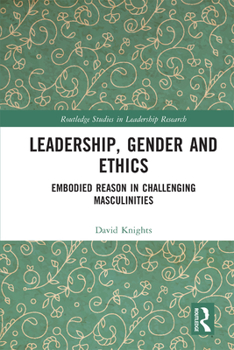Leadership, Gender and Ethics: Embodied Reason in Challenging Masculinities
Select Format
Select Condition 
Book Overview
This book has a clear concern to offer a distinctive way of studying leadership so that it might be practiced differently. It is distinctive in focusing on contemporary concerns about gender and ethics. More precisely, it examines the masculinity of leadership and how, through an embodied form of reasoning, it might be challenged or disrupted. A central argument of the book is that masculine leadership elevates rationality in ways that marginalize the...
Format:Paperback
Language:English
ISBN:0367698935
ISBN13:9780367698935
Release Date:August 2022
Publisher:Routledge
Length:280 Pages
Weight:0.87 lbs.
Dimensions:0.6" x 6.0" x 9.0"
Customer Reviews
0 rating





